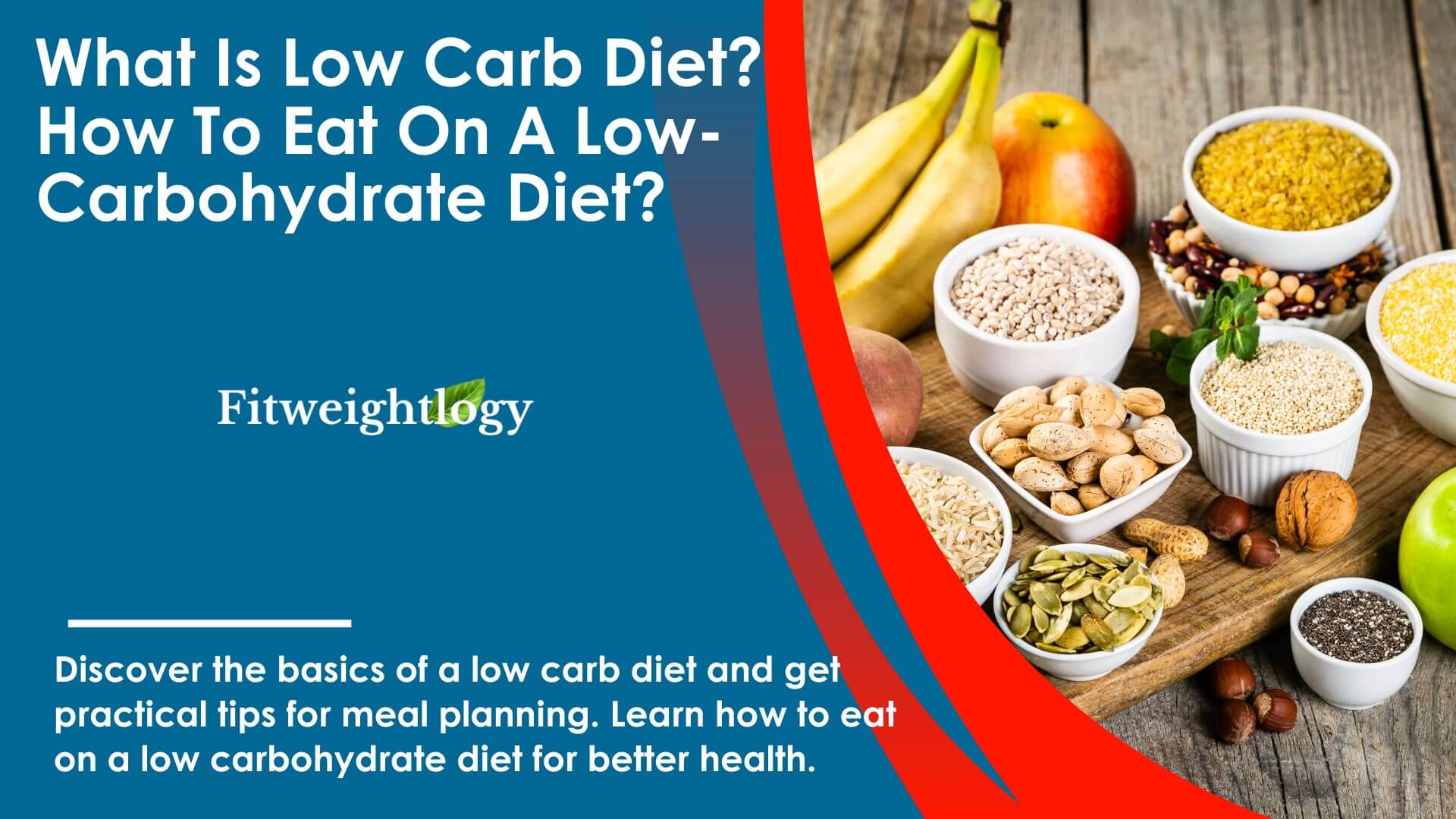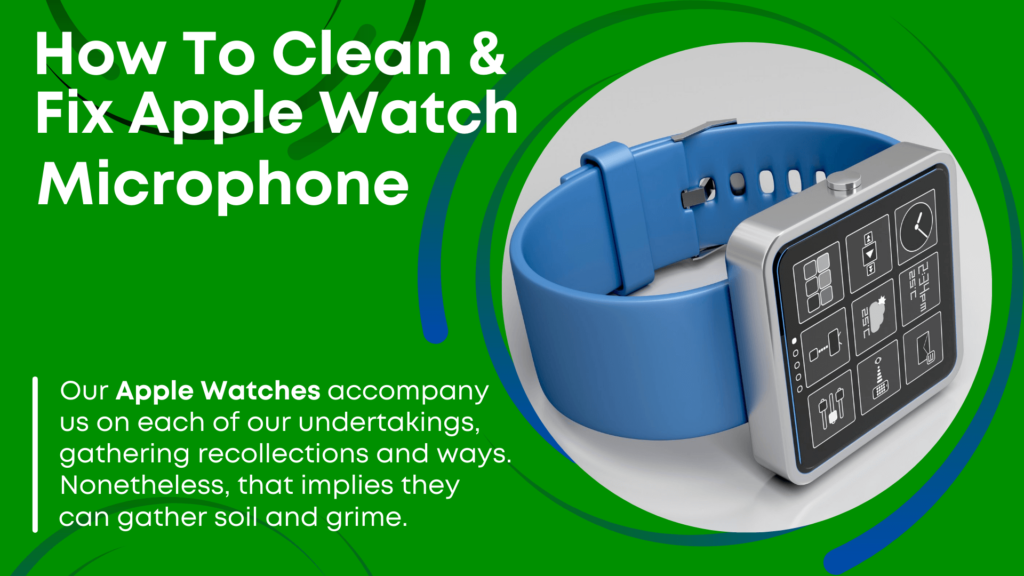In today’s health-conscious world, low-carb diets have gained immense popularity for their potential to aid in weight loss and improve overall well-being. But what exactly are they, and how can you effectively incorporate them into your lifestyle? This comprehensive guide aims to demystify the concept of low-carb diets, providing actionable tips and insights for successful implementation.
This article provides a comprehensive overview, from understanding the basics of low-carb diets to navigating food choices and addressing common misconceptions. Join us as we explore the fundamentals of low-carb nutrition and discover how to make informed dietary choices for optimal health.
Key takeaways:
- Understanding the fundamentals of low-carb diets.
- Exploring the mechanisms behind how low-carb diets work.
- Identifying recommended foods and foods to avoid.
- Highlighting the benefits and considerations associated with low-carb diets.
- Addressing common concerns and misconceptions through FAQs.
Let’s delve deeper into these key points to help you navigate the realm of low-carb eating and achieve your health goals.
What Is A Low-Carb Diet?

A low-carbohydrate diet, or low-carb diet, is a dietary regimen that restricts carbohydrate consumption. Foods high in carbohydrates are limited and replaced with foods containing a higher percentage of fats and proteins.
Low-carbohydrate diets treat or prevent certain medical conditions, including diabetes and obesity. However, they can also be used for weight loss. A low-carb diet is generally considered to be any diet that contains less than 130 grams of carbohydrates per day.
Several different low-carb diets exist, including the Atkins diet, the South Beach diet, the Zone diet, and the ketogenic diet. Each has its own specific set of rules about which foods are allowed and how many carbs can be consumed each day.
What is a zero-carb diet?
A zero-carb diet is a diet that eliminates all carbohydrates, including both simple and complex carbs. This means that the only energy source in this diet comes from fat.
This can lead to impressive weight loss results, as well as other benefits like improved mental clarity and decreased inflammation.
However, it’s important to note that a zero-carb diet is not sustainable in the long term and can be very dangerous if not done correctly.
Many experts recommend against zero-carb diets, as they can lead to nutrient deficiencies and other health problems.
How Do Low-Carb Diets Work?

There are different types of low-carbohydrate diets, and how they work depends on the specific diet plan. However, all low-carb diets work by limiting the amount of carbohydrates consumed.
This reduction in carbohydrate intake causes the body to burn stored fat for energy, which leads to weight loss. Additionally, low-carb diets often lead to increased levels of HDL (good) cholesterol and decreased levels of LDL (bad) cholesterol, which can improve heart health.
What to consider before following a low-carb diet
There are a few things to consider before following a low-carb diet, such as your current weight, health conditions, and activity level. If you are overweight or have obesity, type 2 diabetes, or metabolic syndrome, a low-carb diet may help you lose weight and improve your health.
However, if you have kidney disease or are pregnant, it’s important to speak with your doctor before making any changes to your diet. Additionally, if you are very active, you may need to eat more carbohydrates to fuel your workouts.
However, a lower carbohydrate diet may be for you if you are trying to lose weight.
Another Factor: The Type of Carbohydrate
Generally speaking, the type of carbohydrates you eat is more important than the amount. For example, eating 100 grams of white rice affects your body differently than eating 100 grams of broccoli.
This is because the type of carbohydrate can affect your blood sugar levels to a greater or lesser extent. In this article, we refer to simple and complex carbohydrates.
The body digests Simple carbohydrates quickly, leading to higher blood sugar levels than complex carbohydrates. Examples include sweets like candy, cake, white bread, and pasta.
Complex carbs have a more complex structure that takes longer for your body to break down. This means they cause less of an increase in blood sugar levels than simple carbs.
Complex carbs include whole grains, vegetables, legumes (beans), and fruits with little sugar (like apples).
Most health authorities recommend that people get most of their daily carb intake from complex sources rather than simple ones since complex carbohydrates affect blood sugar levels much less than simple carbohydrates.
A Final Note: How Many Carbs?
What to Eat on a Low-Carb Diet?


A low-carb diet limits carbohydrates, such as those in sugary foods, pasta, and bread. Instead, it eats foods high in protein and healthy fats, such as meat, fish, eggs, nuts, and oils. This type of diet can help you lose weight and improve your health.
Counting calories is unnecessary; you can eat as much food as you like. This is a straightforward diet, requiring no special foods or supplements.
The only downside of this diet is that it can be high in saturated fat, so if you have high cholesterol or are at risk for heart disease, you should limit your intake of saturated fat.
What Not to Eat on a Low-Carb Diet
Here are a few things to avoid if you’re trying to stick to a low-carb diet. First, sugary foods like candy, cookies, and cake are off-limits. You’ll also want to steer clear of starchy vegetables like potatoes and corn and anything made with white flour. Finally, watch out for high-carb fruits like bananas and grapes. Stick to low-carb options like berries, melon, and citrus fruits instead.
If you want to eat fruit, make sure it’s in a smoothie. This is the only way to have low-carb fruit without experiencing blood sugar spikes.
The Bottom Line: Your body needs carbs for energy, but too many can spike your blood sugar and lead to fat storage. Avoiding all carbs can be difficult and may cause cravings and fatigue.
Stick to low-carb fruits, vegetables, and whole grains, avoid sugary drinks, snack on nuts and seeds or Greek yogurt, and use healthy fats for cooking. Getting enough protein at meals will also help keep your blood sugar stable.
Why follow a low-carb diet?
A low-carb diet can be a great way to lose weight and improve your overall health. When you cut out carbohydrates, your body is forced to burn fat for energy, which can lead to weight loss. Low-carb diets can also help to lower blood sugar levels and improve insulin sensitivity.
Cutting out carbohydrates can also have adverse side effects, including fatigue, headaches, and irritability.
A list of diseases that can be prevented with a low-carb diet includes:
1) obesity
2) type 2 diabetes
3) heart disease
4) stroke
5) certain types of cancer
6) fatty liver disease
7) kidney disease
8) Alzheimer’s disease
9) High blood pressure
Is a low-carb diet suitable for everyone?

A low-carb diet restricts carbohydrates, such as those found in sugary foods, pasta, and bread. It is high in protein, fat, and healthy vegetables.
There is no one-size-fits-all approach to diet and nutrition; what works for one person may not work for another. Some people may feel better and have more energy on a low-carb diet, while others may not feel as well.
Ultimately, it is essential to experiment with different types of diets to see what works best for you.
However, a low-carb diet may be suitable for some people, especially those who are overweight or people with type 2 diabetes.
A low-carb diet may also provide health benefits, including weight loss and improved blood sugar control.
If you choose to follow a low-carb diet, it’s important to eat mostly healthy foods and limit unhealthy fat sources, such as processed meats.
Who are low-carb diets bad for?
There are a few reasons why low-carb diets may not be ideal for everyone. First, they can be challenging to stick to long-term, as they require a high level of carb restriction. This can make them hard to sustain and may lead to feelings of deprivation.
Also, low-carb diets may not be suitable for people who need or want to eat more carbs, such as athletes or those with certain medical conditions.
Finally, some people don’t do well on low-carb diets and may feel fatigued, dizzy, or lightheaded when they restrict carbs too much. If you’re considering a low-carb diet, it’s important to talk to your doctor or a registered dietitian first to ensure it’s safe and appropriate.
Low-Carb Food List — Foods to Eat

Many low-carb food options are available to those looking to improve their health or lose weight. Some of the best low-carb foods include lean protein sources, healthy fats, and plenty of vegetables.
Chicken, fish, and tofu are tremendous lean protein sources. Avocados, olive oil, and nuts provide healthy fats. And when it comes to vegetables, there are plenty of delicious options, such as leafy greens, broccoli, and cauliflower.
So whether you want to improve your health or lose weight, stock your kitchen with these tasty and nutritious low-carb options!
Potential side effects of a low-carb diet
There are some potential side effects to be aware of when following a low-carb diet. These include:
- Fatigue—This is often caused by a lack of glucose (sugar) in the diet, as carbohydrates are broken down into glucose and used for energy.
- Headaches—This can be due to a lack of glucose in the diet. Some people may also be ‘carb sensitive’ and need to limit their intake to avoid headaches.
- Dizziness – This is usually caused by a drop in blood sugar levels, which can happen when cutting out carbs.
- Constipation can result from not getting enough fiber in the diet or from dehydration caused by cutting out high-carb foods that contain water (such as fruits and vegetables).
Suppose you experience any of these side effects. In that case, consulting with a doctor or registered dietitian is important to ensure you follow the diet correctly and get all the nutrients you need.
Potential Health benefits of a low carb diet
A low-carb diet has the potential to offer a number of health benefits. For example, it can help improve blood sugar control, reduce inflammation, and promote weight loss. Additionally, it may help reduce the risk of developing some chronic diseases, such as heart disease and type 2 diabetes.
Newcastle Study: 600 Calorie Diet

A new study from Newcastle University has found that a 600-calorie diet can help people with diabetes lose weight and improve their health. The study, the first of its kind, followed 30 people with type 2 diabetes for 12 weeks. Participants were asked to consume a very low-calorie diet for eight weeks, followed by four weeks of maintenance.
The results showed that the 600-calorie diet led to significant weight loss and improved blood sugar levels, blood pressure, and cholesterol. The participants also reported feeling more energetic and having better quality sleep.
This study provides strong evidence that a very low-calorie diet can effectively treat type 2 diabetes. If you are considering this diet, speak to your doctor or a registered dietitian to ensure it is right for you.
Limitations of Low-Carb Dieting
The low-carbohydrate diet is a nutritional approach shown to be effective in some studies for weight loss and improving cardiovascular risk factors.
However, there are also limitations to this diet that should be considered before starting it. First, the low-carb diet can be difficult to stick to long-term and may cause cravings for high-carbohydrate foods.
Second, it may not be suitable for everyone, particularly those with diabetes or other chronic health conditions. Finally, as with any diet, there is always the potential weight once the diet is stopped.
A 3-Day Sample Menu of a Low-Carb Diet
A low-carb diet can be a great way to lose weight and improve your overall health. Here is a sample 3-day menu for a low-carb diet:
Day 1:
- Breakfast: 2 eggs, cooked in any way you like, with 1/2 avocado and 1 tomato
- Lunch: Chicken salad with olive oil and vinegar dressing
- Dinner: Salmon with broccoli and green beans
Day 2:
- Breakfast: Omelette with spinach, mushrooms, and feta cheese
- Lunch: Tuna salad with olive oil and vinegar dressing
- Dinner: Beef stir-fry with peppers, onion, and mushrooms
Day 3:
- Breakfast: Blueberry muffin made with almond flour (recipe HERE)
- Lunch: Cucumber and chicken salad
- Dinner: Grilled chicken breast with roasted Brussels sprouts
Different Types of Low-Carb Diets

There are many different types of low-carb diets, each with its own pros and cons. The most popular low-carb diets are the Atkins Diet, the South Beach Diet, the Paleo Diet, and the Keto Diet.
The Atkins Diet is one of the most well-known low-carb diets. It was created by Dr. Robert Atkins in 1972. The Atkins Diet recommends cutting carbs and eating more protein and fat. There are four phases to the Atkins Diet: induction, ongoing weight loss, pre-maintenance, and lifetime maintenance.
The South Beach Diet is another popular low-carb diet. It was created by Dr. Arthur Agatston in 2003. The South Beach Diet recommends cutting carbs and eating lean protein and healthy fats. There are three phases to the South Beach Diet: phase 1 (the strictest phase), phase 2 (the maintenance phase), and phase 3 (the lifestyle phase).
The Paleo Diet is based on the belief that humans should eat like our Paleolithic ancestors did. This means eating mostly meats, vegetables, fruits, nuts, and seeds. The Paleo Diet cuts out grains, legumes, dairy, and processed foods.
The Keto Diet is a high-fat, low-carb high-fat, low-carb diet that excludes grains, legumes, dairy, and processed foods.
The Whole30 Diet cuts out grains, legumes, dairy, and processed foods for 30 days.
How to Reduce Your Carb Intake in a Healthy Way
A high-carb diet can lead to weight gain and other health problems, but you don’t have to completely eliminate carbs to see benefits. Reducing your carb intake can be a healthy way to improve your overall diet and lose weight. Here are some tips for healthily reducing your carb intake:
- Choose complex carbohydrates over simple carbohydrates. Complex carbohydrates (like vegetables, whole grains, and beans) are slower to digest and provide more nutrients than simple carbohydrates (like white bread, white rice, and sweets).
- Limit processed foods. Processed foods (like crackers, chips, and cookies) are often high in unhealthy fats, salt, and sugar.
- Fill up on fiber. Fiber helps keep you feeling full longer and can help reduce cholesterol levels. Good sources of fiber include fruits, vegetables, whole grains, beans, and nuts.
- -Eat smaller portions. When it comes to carbs, less is often more. Eating smaller portions of high-quality carbs can help you reach your goals without feeling deprived.
Why you might follow a low-carb diet
A low-carb diet restricts carbohydrates, such as those found in sugary foods, pasta, and bread. It is usually high in protein and fat.
There are a few reasons why you follow a low-carb diet. One reason is to lose weight. A low-carb diet can help you lose weight by making you feel fuller for longer and reducing your appetite.

Another reason is to improve your blood sugar control. If you have diabetes or prediabetes, a low-carb diet can help to improve your blood sugar levels. Finally, a low-carb diet may also help reduce your risk of heart disease.
Be aware of alternatives to low-carb diet
Exercise appropriately
Exercising appropriately can help prevent injuries, improve overall health and fitness, and make you feel better. It is vital to find an exercise routine that works for you and that you enjoy so that you will stick with it. Be sure to warm up and cool down properly and listen to your body so you do not overdo it.
Diet & Weight Management
Diet and weight management are essential for maintaining a healthy lifestyle. Eating a balanced diet and maintaining a healthy weight can help reduce the risk of developing chronic diseases such as heart disease, stroke, and diabetes.
A healthy diet includes eating various foods from all food groups in moderation, including lean protein, whole grains, fruits, vegetables, and low-fat dairy. Regular physical activity is also crucial for maintaining a healthy weight.
Exercise and Fatigue
Regular exercise is an integral component of a healthy lifestyle, but adjusting your workout routine is essential when following a low-carb diet. Initially, you may experience fatigue as your body adapts to using fat for fuel instead of carbohydrates during exercise.
However, you’ll likely notice increased endurance and energy levels as your metabolic flexibility improves. To combat fatigue, focus on consuming adequate protein and healthy fats, staying hydrated, and gradually increasing exercise intensity over time.
Low carbohydrate diets and heart disease
The relationship between low-carb diets and heart disease risk is the subject of ongoing debate. While some studies suggest that low-carb diets may improve cardiovascular risk factors such as blood pressure and lipid profiles, others raise concerns about their potential impact on long-term heart health.
It’s crucial to moderate low-carb eating and prioritize nutrient-dense foods to minimize any adverse effects on heart health. Additionally, consulting with a healthcare professional can provide personalized guidance based on individual risk factors and health status.
7 Common Low-Carb Diet Mistakes

People make a few common mistakes when following a low-carb diet. Here are seven of the most common ones:
1. Not getting enough fat.
Many people think that all fats are bad for you and that you should avoid them as much as possible. However, this is different from healthy fats. Healthy fats are essential for your body to function properly and can actually help you lose weight. Make sure you include healthy fats in your diet, such as avocados, olive oil, and nuts.
2. Needing more protein.
Protein is essential for building muscle and losing weight. If you don’t get enough protein, your body will start breaking down muscle for energy instead of fat. Ensure you include plenty of protein-rich foods, such as meat, fish, eggs, and dairy.
3. Eating too many carbs.
Even though you’re on a low-carb diet, you can still eat too many carbs. This can lead to weight gain and other health problems. Remember how many carbs you should eat daily, and stick to that number.
4. Not drinking enough water.
Water is the most crucial nutrient for your body, and you need to drink lots daily. Try to drink at least 8 glasses a day.
5. Not getting enough sleep.
Sleep is vital for your body and mind. It helps to repair your cells and gives you energy for the next day. Try to get at least 8 hours of sleep every night.
6. Neglecting Fiber Intake.
Fiber is essential for digestive health and helps promote feelings of fullness. Not consuming enough fiber on a low-carb diet can lead to constipation and other gastrointestinal issues. Ensure you include plenty of fiber-rich foods such as vegetables, nuts, seeds, and low-carb fruits to support optimal digestion.
7. Ignoring Electrolyte Balance.
When following a low-carb diet, electrolyte imbalances can occur due to changes in fluid and mineral levels. Inadequate sodium, potassium, and magnesium intake can lead to symptoms like fatigue, muscle cramps, and headaches.
Incorporate electrolyte-rich foods such as leafy greens, avocados, and bone broth, or consider using electrolyte supplements to maintain balance and support overall health.
Common Mistakes to Avoid When Starting a Low-Carb Diet
People make a few common mistakes when starting a simple low-carb diet. One needs to eat more fat, which is essential for satiety and energy. Another mistake is not planning ahead and having healthy, low-carb snacks and meals available. It’s also important to ensure you get enough electrolytes, especially sodium when cutting carbs. Finally, feel free to experiment and find what works for you.
Summary: Should You Go on a Low-Carb Diet?

A recent study published in the New England Journal of Medicine has found that a low-carb diet may be the best way to lose weight and keep it off. The study followed over 600 people for three years. Those who followed a low-carb diet lost more weight than those who followed a low-fat or Mediterranean diet.
The study found that the low-carb group lost an average of 8.6 pounds (3.9 kg) more than the low-fat group (2.7 kg) and the Mediterranean group (4.4 kg). The low-carb group also had a lower rate of heart disease and other health problems.
If you’re considering a low-carb diet, talk to your doctor first to ensure it’s right.
FAQs: Addressing Common Concerns
1. Is a Low-Carb Diet Suitable for Everyone?
While low-carb diets can benefit many individuals, they may only suit some. Before starting a low-carb diet, medical conditions, activity levels, and personal preferences should be considered. Consulting with a healthcare professional can determine if a low-carb approach aligns with individual needs.
2. Who Should Avoid Low-Carb Diets?
Individuals with certain medical conditions, such as kidney disease or diabetes, may need to exercise caution when considering a low-carb diet. Additionally, pregnant or breastfeeding women and those with specific dietary restrictions may find it challenging to adhere to a low-carb regimen.
3. What Are Some Common Mistakes to Avoid?
Common mistakes on a low-carb diet include not consuming enough healthy fats and proteins, overindulging in low-carb processed foods, and neglecting to stay hydrated. It’s essential to prioritize nutrient-dense whole foods and maintain a balanced approach to eating.
4. How Can I Overcome Challenges on a Low-Carb Diet?
To overcome challenges on a low-carb diet, focus on meal planning, incorporating a variety of nutrient-rich foods, and seeking support from healthcare professionals or online communities. Additionally, staying mindful of portion sizes, staying hydrated, and listening to your body’s hunger cues can help you navigate potential obstacles.
5. Are There Alternatives to Low-Carb Diets?
Yes, several dietary approaches exist in addition to low-carb diets, including balanced macronutrient diets, plant-based diets, and Mediterranean-style eating plans. Exploring different options and finding a dietary approach that aligns with individual health goals and preferences is essential.
Posted in
Welcome to Fitweightlogy! We are an optimum review website of all the best products associated with weight loss, healthy life, fitness, tips, and motivations. We are a quickly developing organisation given that we typically put our visitors first. A customer-focused experience has regularly been our objective, and we value our comprehensive policies, which have placed us in a domain well beyond our competitors. On this website, we assist our visitors in reaching their desired weight, appearance goals and live a healthy lifestyle, as well as save money and time by meticulously researching and evaluating the market, assessing the available products, and producing informative recommendations based on factors such as quality, availability, price and more. Furthermore, our passion is to assist you in choosing the best possible product through our product reviews.








